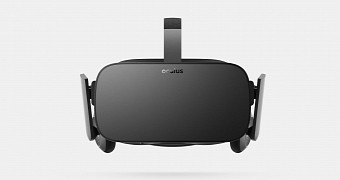The virtual reality was supposed to arrive in 2015, but it seems that practical concerns about hardware and software development are affecting all the companies that are trying to enter the field and that the creators of the Oculus Rift are working hard to make sure that plenty of content is offered to all those who are willing to pick one up next year.
According to a Twitter message from Palmer Luckey, the founder of the company, he is working with a variety of third-party developers to make sure that plenty of video games and experiences linked to VR are available on launch.
The executive also makes it clear that his team is working with other players in the virtual reality field to make sure that the technology is mature enough and captures the imagination of as many players as possible.
Palmer Luckey also says that he is still aiming to launch the Oculus Rift during the first quarter of next year and that the manufacturing process for the device is ramping up, although he is once again unwilling to talk about an actual date.
The executive has also suggested that all VR solutions might be pricier than gamers initially expected, with some speculating that the commercial version of the headset will be offered for 400 or 500 dollars or Euro.
This would make it more expensive than the Xbox One and the PlayStation 4 and might mean that overall sales are relatively low because many potential users will prefer to use the money to buy classic games or even a new piece of hardware.
Luckey has also said that early adopters are subsidized by the companies selling the virtual reality hardware although they do not understand that the process is taking place.
Virtual reality will probably fail to revolutionize gaming in 2016
The Oculus Rift is the first company that secured funding for the development of a VR solution focused on gaming and received, even more, backing for the effort when Facebook bought it.
But it is facing competition from a team made up of HTC and Valve, who initially said that their own Vive would arrive in 2015 and are saying that a new major tech breakthrough means that launch has been delayed to next year.
Sony is also creating its PlayStation VR solution, which was first known as Project Morpheus, also set to arrive next year and planned to work only with the PlayStation 4.
Microsoft is planning to offer an alternative solution called the HoloLens, which delivers an augmented reality experience and will be more focused on commercial rather than gaming applications.
Some rumors are also speculating that Nintendo plans to deliver some VR element in its coming NX platform.
Despite the joint efforts of these major companies, the price and limited number of major releases will probably mean that virtual reality will fail to make a huge impact next year, despite the fact that the immersion it delivers can generate a revolution for the entire gaming industry.
Hardware with no games = paperweight. Oculus Studios is making tons of content, but third-party content will drive the long term VR market.
— Palmer Luckey (@PalmerLuckey) December 29, 2015

 14 DAY TRIAL //
14 DAY TRIAL //